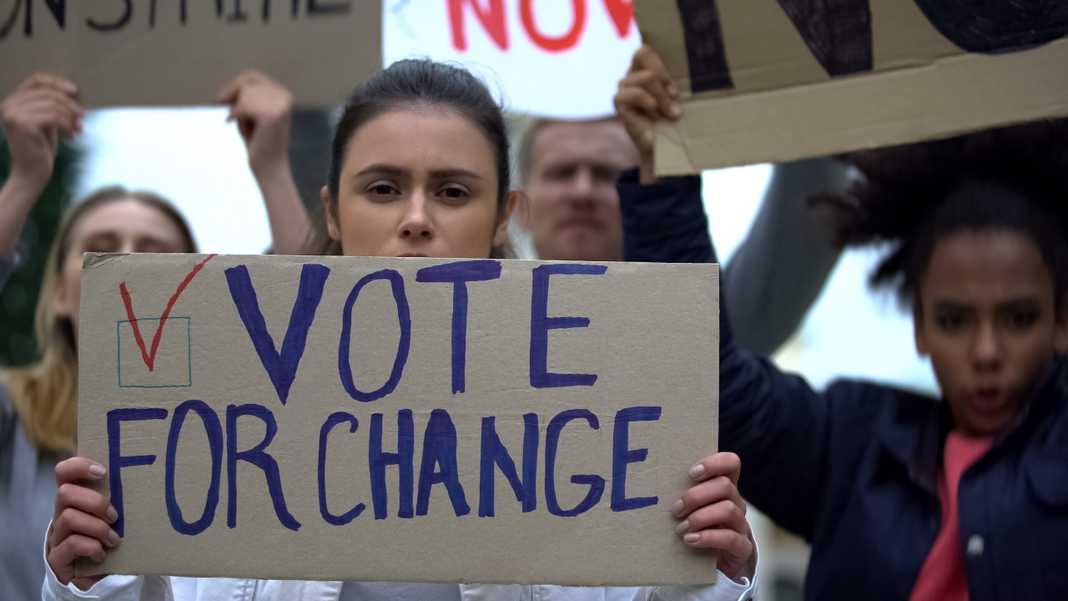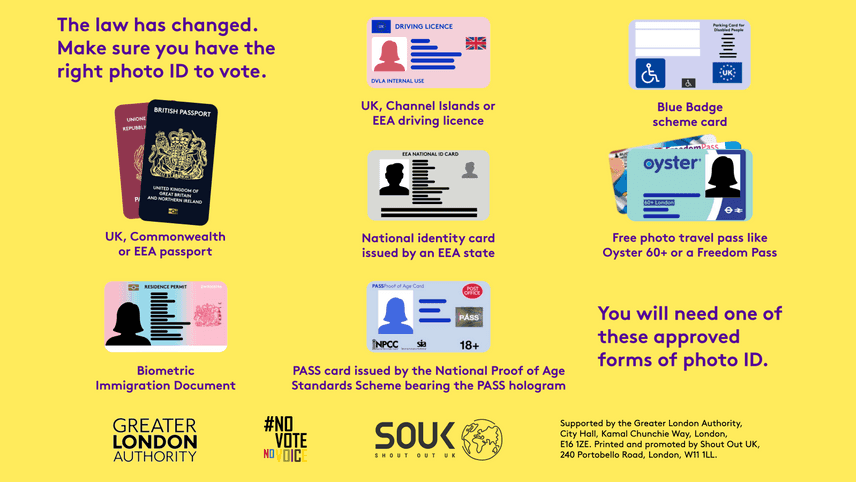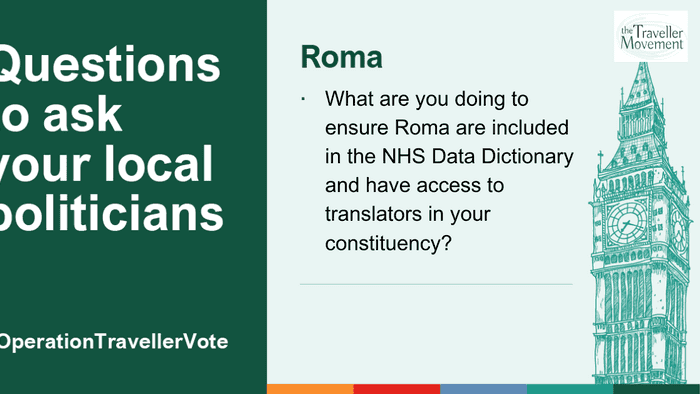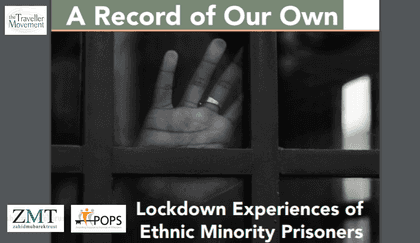Operation Traveller Vote
Encouraging Romani (Gypsy), Roma and Irish Travellers to register to vote and vote in upcoming elections

Your rights have changed
As of May 2023, your democratic rights have changed. In future UK elections, you will need to show photo ID in order to vote in person. If you can’t show photo ID, you won’t be able to vote – and that means losing your voice on the issues that are important to you.
The accepted types of photo ID are shown below:

What if I don’t have photo ID?
If you don’t own any of the types of photo ID listed above, you can apply for a free voter authority certificate from the Government. You won’t be able to use this document as proof of ID in other settings, but you will be able to show it at polling stations so you are able to vote.
You can apply for a Voter Authority Certificate online, or by post, and you can start your application by clicking HERE. The Traveller Movement team are also here to support you with any help you need in completing your application, and you can find out more on this factsheet. You can give us a call, or get in touch at policymanager@travellermovement.org.uk
Do I need to be registered to vote?
Yes! Even if you have accepted photo ID you will still not be able to vote if you are not registered, and you can’t apply for a Voter Authority Certificate unless you’ve already registered. Registering to vote only takes around 5 minutes, and you can do it online HERE
The information factsheet explains more
Is my data safe?
When you register to vote, you will automatically join what is called the ‘open’ register. This is the version of the register that anyone is allowed to buy. When you register to vote, you will have the choice to opt out of the open register, and this will not affect your right to vote.
If you opt out, you will join what is called the ‘full’ register. For more information, please click HERE
Anonymous Voter Registration
If you are worried about your name and address appearing on the full register, and think it could risk your safety or the safety of someone you live with, you can register to vote anonymously – this means your details won’t appear on any version of the register, but you will still be allowed to vote. To apply to register anonymously, you will need evidence to support your application. This could either be a court document, or a supporting statement from certain authorised persons like GPs, Directors of children’s or adult social services, or a police officer of Inspector rank or above
Find out more about anonymous voting here
Voting in elections
The Traveller Movement launched #OperationTravellerVote to ensure Romani (Gypsy), Roma and Irish Travellers are registered to vote and most importantly, have their voices heard during elections.
Read about Cassie Marie McDonagh’s experience of voting for the first time.
This video showcases the reasons behind the lack of Romani (Gypsy), Roma and Irish Traveller vote:
Polling Stations
Are you fed up with the poor services in your area? There is something you can do to help improve them! Voting gives you a say on important issues that affect you. Everything from roads and recycling in your area, health services to education and climate change. You may think you don’t want to vote now, but if an issue comes up that you want to have your say on, if you’re on the register you’ll have the chance to vote on it. Remember, registering to vote does not mean you have to, it just means you can if you want to!
Who can register to vote?
British or qualifying Commonwealth citizens aged 16 or over (but you cannot vote until you are 18). This means Commonwealth citizens who have leave to remain in the UK or do not require such leave. Citizens of the Republic of Ireland or other European Union (EU) member states.
Operation Traveller Vote 2024
How do you register to vote?
Registering to vote takes around 5 minutes and can be done easily online: https://www.gov.uk/register-to-vote
Who can vote?
British, Irish and qualifying citizens of Commonwealth countries (including Cyprus and Malta) can vote at all elections. Citizens of other EU member states resident in the UK can vote in local government elections but cannot vote in UK Parliamentary elections. Those that reside in Scotland or Wales may also vote in Scottish Parliamentary or National Assembly for Wales election.
Who should you vote for?
Not sure which party has policies closest to your own? We have come up with six key questions to ask your candidates, and a short briefing to explain why these changes are needed! Write to your local candidate or ask them on twitter (using the #OperationTravellerVote hashtag) and make your voice heard!]






Further Information & Resources
Follow Traveller Movement’s Twitter and Facebook to get updates from the #OperationTavellerVote campaign
OperationTravellerVote on Facebook
Guide to the general elections
Visit the Electoral Commission website
Track your local MP and keep tabs on what they do on your behalf: TheyWorkForYou Contact us: info@travellermovement.org.uk
See FAQs for more on registration and voting
Traveller Movement Manifesto

